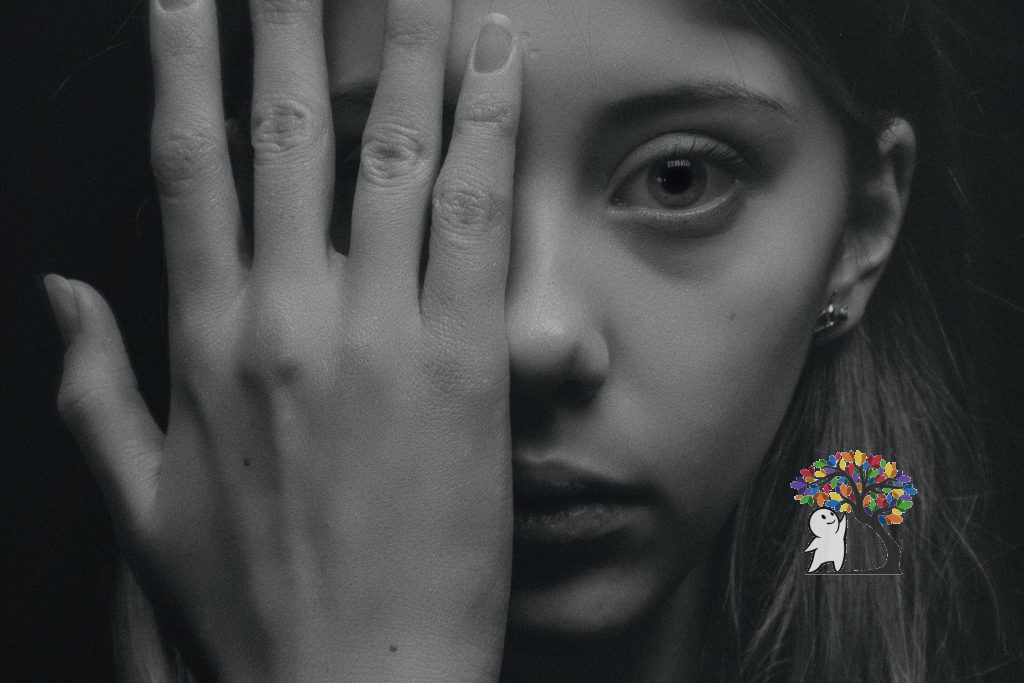How Childhood Emotional Abuse Affects You In Adulthood

Ever wonder why the punchline to every psychology joke always has something to do with either our childhoods or our issues with our parents? Or why people lying on a therapist’s couch tend to answer the question, “So tell me about your problem” with “It all began when I was little…”? It’s because on some level, we all intuitively understand that our childhood experiences play a big role in shaping who we are and what we believe about others, ourselves, and the world around us. That’s why so much of psychology research, theories, and psychotherapy focuses on understanding the impact early childhood experiences have on a person.
One particular line of research in the field focuses on adverse childhood experiences and the therapy built on these studies, known as psychodynamic approaches, aims to ameliorate the detrimental impact it can have on us even well into adulthood. The U.S. Children’s Bureau (2020) defines adverse childhood experiences (ACEs) as traumatic events that occur during childhood, such as abuse, neglect, illness, injury, or bullying/peer victimization. The long-term effects of such experiences can manifest either physically, psychologically, or behaviorally.
With that said, let’s dive even deeper into how childhood abuse — specifically emotional abuse — affects you even in adulthood:
1. It makes you anxiously attached.
Ever heard about attachment theory? Pioneered by John Bowlby and Mary Ainsworth, attachment theory posits that there are generally two kinds of attachment styles we develop as a result of our early childhood experiences with our parents or caregivers, that is: secure attachment and insecure/anxious attachment.
Anxious attachment is then categorized as either: preoccupied (when you have a positive view of others but a negative view of yourself, leading to self-doubts, insecurity, and clinginess); dismissive (when you have a positive view of yourself but a negative view of others, which makes you distant and overly self-reliant); or fearful/disorganized (the attachment style of those who have experienced abuse).
People with a fearful/disorganized attachment style tend to be very wary and guarded around others, as well as being extremely sensitive to rejection, conflict, and abandonment. And as adults, they often struggle to form lasting positive relationships as a result of their unresolved attachment-related trauma. Which brings us to our next point…

2. It stunts your emotional development.
Being emotionally abused as a child stuns your emotional development because it teaches you all the wrong things about life. Instead of learning important skills like emotion regulation, self-awareness, and relationship management, victims of emotional abuse often grow up to develop issues such as emotional co-dependency, self-blame, and social isolation (Reyome, 2019).

3. It leads to self-destructive patterns.
When someone comes from a home that fails to provide them with a sense of safety and security important to every child’s development, more likely than not, that child will grow up to develop self-destructive patterns and maladaptive coping mechanisms instead. According to a meta-survey done by the Mental Health Center at Destination Hope (2022), these can manifest in a number of ways, such as in their behaviors (e.g., developing addictions, delinquency, suicidal tendencies) or their thought patterns (e.g., low self-esteem, depression, anxiety).

4. It compromises your quality of life.
Taking all of the things we’ve talked about into account, it should come as no surprise then that many researchers have found that the experience of childhood emotional abuse is associated with a poorer quality of life (e.g., Yates, 2007). Thankfully, many studies have also highlighted that a lot of victims of abuse can and do recover, thriving later in life in spite of their adverse childhood experiences (e.g., Thomas & Hall, 2008). The trouble is, most of them unfortunately have to struggle to get there.

5. It puts you at higher risk of mental health problems.
Last but certainly not the least, childhood emotional abuse can continue to haunt us even years afterwards by putting us at higher risk of developing certain mental health issues such as depression and anxiety. All forms of child abuse have also been found to be strongly correlated with PTSD, substance abuse, and suicide (Allen, 2008).

So if you are still struggling with your experiences of childhood emotional abuse, know that help is always available. The best thing you can do for yourself is to reach out to a mental healthcare professional today and begin healing from the pain of your past. Consider this the first day of your journey towards mental wellness, recovery, and self-discovery. What is one way you will no longer let your childhood emotional abuse affect you?
References:
- U.S. Department of Health and Human Services – Children’s Bureau (2020). “Adverse Childhood Experiences (ACEs).” Retrieved 28 April 2020 from https://www.childwelfare.gov/topics/preventing/preventionmonth/resources/ace/
- Reyome, N. D. (2019). Childhood emotional maltreatment and later intimate relationships: Themes from the empirical literature. In The Effect of Childhood Emotional Maltreatment on Later Intimate Relationships (pp. 224-242). Routledge.
- Mental Health Center at Destination Hope. “How Childhood Trauma Affects Us as Adults.” Retrieved 10 June 2022 from https://www.mentalhealthcenter.org/how-childhood-trauma-affects-adult-relationships/
- Yates, T. M. (2007). The developmental consequences of child emotional abuse: A neurodevelopmental perspective. Journal of Emotional Abuse, 7(2), 9-34.
- Thomas, S. P., & Hall, J. M. (2008). Life trajectories of female child abuse survivors thriving in adulthood. Qualitative health research, 18(2), 149-166.
- Allen, B. (2008). An analysis of the impact of diverse forms of childhood psychological maltreatment on emotional adjustment in early adulthood. Child Maltreatment, 13(3), 307-312.
- Street, A. E., Gibson, L. E., & Holohan, D. R. (2005). Impact of childhood traumatic events, trauma‐related guilt, and avoidant coping strategies on PTSD symptoms in female survivors of domestic violence. Journal of Traumatic Stress: Official Publication of The International Society for Traumatic Stress Studies, 18(3), 245-252.
- Bovarnick, S. (2007). Child Neglect: Short-term and Long-term Outcomes. London: National Society for the Prevention of Cruelty to Children.
(National Clearinghouse on Child Abuse and Neglect Information, 2004)



Responses